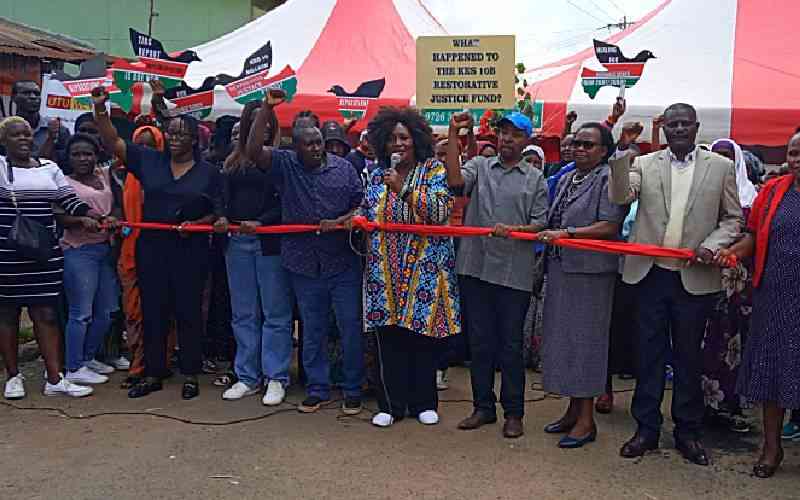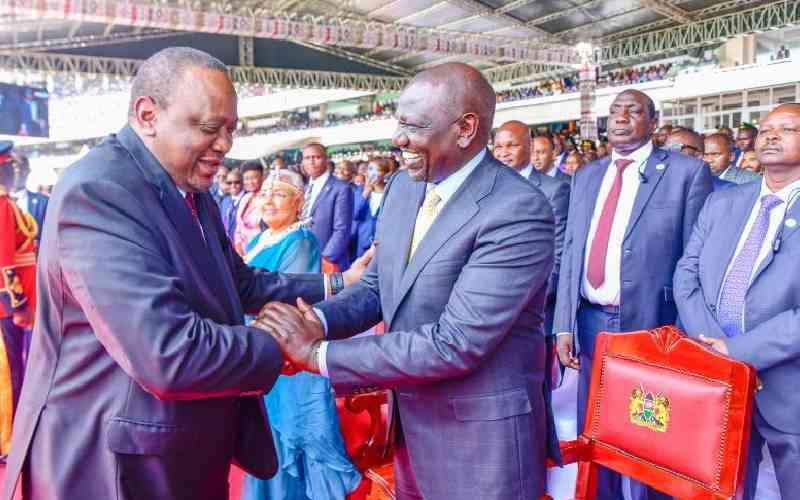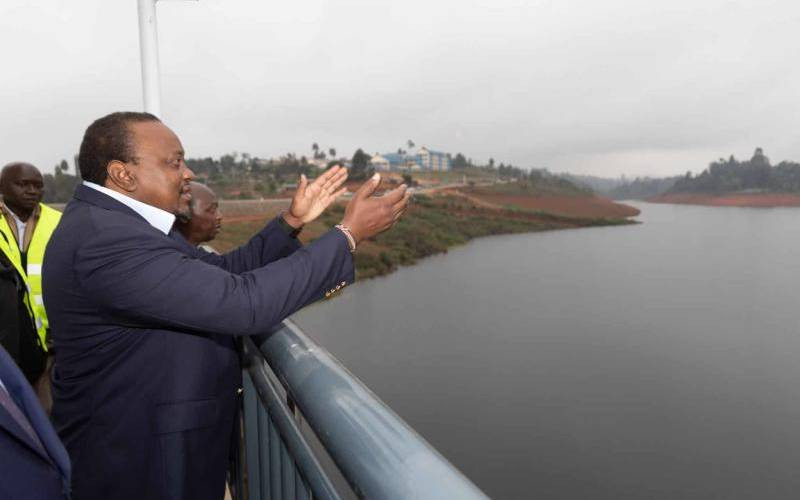By Felix Olick
NAIROBI, KENYA: The Government is on the spot over its commitment to implement the explosive Truth, Justice and Reconciliation Commission (TJRC) report.
This follows its failure to gazette the report and table it in Parliament within 21 days after its submission to the President as required by the law.
Members of civil society claim there is a scheme to derail the implementation of the damning report, which has rubbed some top Government officials and senior politicians the wrong way.
Last month, The Standard On Saturday broke the story of a row between TJRC commissioners over changes to the report. The document was subsequently released with unauthorised changes.
According to Article 48 (3) of the TJRC Act, the commission is required to publish the report in the Kenya Gazette immediately after submission to the President. However, we have established that the report has not been gazetted to date, 30 days after it was handed over to President Uhuru Kenyatta, putting its implementation into jeopardy.
TJRC Vice Chairperson Tecla Namachanja said the commission is worried that the report has not been gazetted even after they paid all the requisite fees.
“We paid for the gazette notice and printing of at least 50 copies of the report,” Namachanja told The Standard on Saturday. “We do not know why this has not been done. Even we, as a commission, are worried. Talk to the Attorney General and those in charge of the Government Printer. We did our part.”
She, however, said she is not aware of any scheme by the Government to interfere with the report. The 2,000-page document recommends prosecution of hundreds of politicians and senior State officials over various alleged offences.
Land matters
Some sections relating to land matters sharply divided the commission shortly before it was submitted to Uhuru. Three international commissioners said a senior official at the Office of the President asked TJRC to ‘doctor’ the chapter before the President could accept it.
The three (retired Ethiopian diplomat Berhanu Dinka, US law professor Ron Slye and Zambian High Court judge Gertrude Chawatama) revealed that after the orders, their Kenyan counterparts caved in to pressure.
“A number of commissioners, including at least one of the international commissioners, allegedly received phone calls from a senior official in the OP suggesting various changes to the land chapter. These suggestions included the removal of specific paragraphs,” the three revealed.
On Friday, civil society organisations came out guns blazing accusing the Office of the President of interference and “deepening impunity as well as the suffering of victims of historical injustices”.
The civil society organisations under the banner of Kenya Transitional Justice Network (KTJN) threatened to move to court if the Government continued with what they termed as “bureaucratic hurdles to derail implementation”.
Stay informed. Subscribe to our newsletter
“The report ought to have been tabled in Parliament by June 11. It is unacceptable to have the implementation phase of this report subjected to bureaucratic hurdles and political interference,” said Deputy Director for International Centre for Transitional Justice Njonjo Mue.
They said that they would write to the Attorney General Githu Muigai and the Government Printer reminding them of their constitutional responsibilities failure to which they would move to court.
“We shall first of all write to them and remind them of their obligation. If they fail we shall be left with no option but to go to court to compel them to obey the law,” They said at a press conference in Nairobi yesterday.
Uhuru and his Deputy William Ruto are among those adversely mentioned in the report over the 2007 post-election violence for which they face trial at the International Criminal Court. However, the report recommended no action against the two leaders because they are already facing trial at The Hague.
TJRC recommends that the Director of Public Prosecutions investigates the adversely mentioned individuals, against whom the report finds there is “ample evidence capable of sustaining prosecution.” The report also names a senator and scores of MPs accused of involvement in land grabbing, fanning ethnic clashes and brutal crackdown by security forces at the height of repression.
KTJN called on the investigative arms of the Government to probe the failures and purported interference. According to the Act, the implementation of the report should commence within six months upon publication.
“The minister shall report to the National Assembly within three months of receipt of the report of the Commission, and twice a year thereafter, as to the implementation of the Commission’s recommendations,” Article 50 (1) reads.
 The Standard Group Plc is a
multi-media organization with investments in media platforms spanning newspaper
print operations, television, radio broadcasting, digital and online services. The
Standard Group is recognized as a leading multi-media house in Kenya with a key
influence in matters of national and international interest.
The Standard Group Plc is a
multi-media organization with investments in media platforms spanning newspaper
print operations, television, radio broadcasting, digital and online services. The
Standard Group is recognized as a leading multi-media house in Kenya with a key
influence in matters of national and international interest.
 The Standard Group Plc is a
multi-media organization with investments in media platforms spanning newspaper
print operations, television, radio broadcasting, digital and online services. The
Standard Group is recognized as a leading multi-media house in Kenya with a key
influence in matters of national and international interest.
The Standard Group Plc is a
multi-media organization with investments in media platforms spanning newspaper
print operations, television, radio broadcasting, digital and online services. The
Standard Group is recognized as a leading multi-media house in Kenya with a key
influence in matters of national and international interest.








